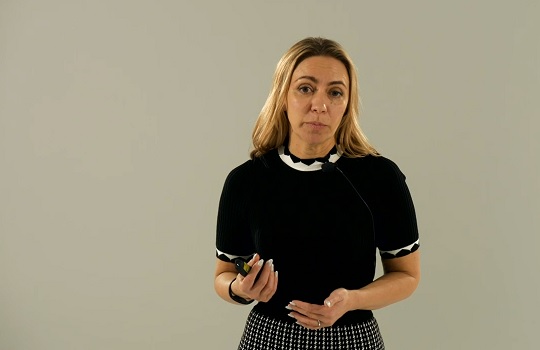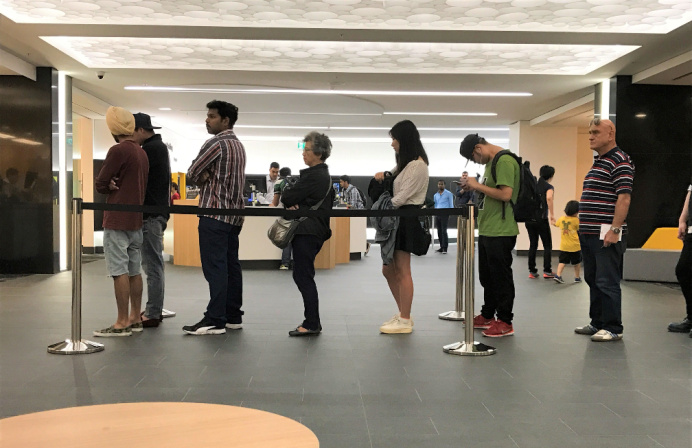
Amidst ongoing Covid lockdowns, New Zealand’s largest private healthcare organisation, Southern Cross Healthcare Group (SCHG), has hit not walls but a wellspring of innovation. During this time, the insurance and healthcare giant has accelerated its analytics program, reengineering its data function to meet the immediate challenges of Covid crisis and ready the business for a post-pandemic ‘new normal’.
Speaking at FST’s first-ever Future of Financial Services, Auckland virtual conference, Southern Cross Healthcare’s head of data and analytics, Anna Tarasoff, urged financial institutions to double down on their analytics programs, empowering data teams to accelerate front-end service transformation and deliver a rapid decision-making capability to business leaders.
Data and analytics teams, she stressed, should be at forefront of innovation in FSI’s product and service offerings – in spite, and perhaps because, of increasing strain on operating budgets.
“Creating and fostering innovation in a really challenging financial climate is easier said than done, but it is necessary,” Tarasoff said.
“We will have to be frugal with our innovation and where we invest in money. [But], because of the restrictions with the revenue growth, these challenges create a lot of opportunities for data and analytics team to become the most important part of the delivery engine.”
First and foremost, Tarasoff said, businesses must fully utilise data teams’ capability to deliver real-time reporting to decision makers. This, she said, will be critical for financial organisations to rapidly respond to revenue pressures and unique customer demands during this period of uncertainty and economic hardship.
Southern Cross was quick to roll out its own dedicated “Covid-19 dashboard”, she said, allowing the insurer to monitor company performance daily, simulate future economic scenarios, and guide business planning.
“This advanced analytical model helped us forecast all possible business scenarios and the needs of our customers,” she said.
For Tarasoff, these models serve as invaluable tools to identify probable business stress case scenarios, such sudden spikes in unemployment or bankruptcy rates, or even the spread of coronavirus and its potential impact on business and consumer activity.
“This forecasting activity will help your business to pivot their actions and adjust the priorities,” she said.
“These types of analytics require [businesses to] proactively tap into new data sources. So, forward thinkers have started to set in the data labs that identify and find early signs of economic recovery from customers, from suppliers from vendor signals and so on.”
As a direct result of the roll-out its own in-house developed reporting and analytics system, Tarasoff said SCHG was able to return $50 million* to customers during the Covid-19 crisis period “as a pledge and the recognition of their hardship”.
“It was only possible because of this rapid reporting and analytics that we were able to serve our customers like this.”
360 degrees of personalisation
Data-informed decision-making sits at the heart of innovation in customer service today – it is, indeed, fundamental to delivering truly personalised customer experiences that are increasingly sought after by consumers.
Tarasoff said the financial sector “should take a cue” from social media in personalising content and advice for customers rather than simply “focusing on periodic reviews done by an adviser or sales manager”, as is often the wont of many FSIs.
Such personalisation could range anywhere from tailored “investment advice to holistic wellness advice, life planning and beyond”, she said.
“In some cases, a digital experience could be supplemented by self-service tools, including a wealth calculator, or could be a goal-based wellbeing tracking delivered to personalised, analytics-driven 360-degree view of our customers.”
Tarasoff stressed the critical importance of data teams working to aggregate customer data into a single, accessible repository (collecting anything from basic contact information to data on past purchasing habits or even natural language processing of customer service or social media interactions) – the vaunted 360-degree customer view.
Successful delivery of the customer 360-degree view is a game-changer for Tarasoff. The customer 360 is, she reckoned, “a unique opportunity to become a true enabler for every imaginable customer experience and in improving the new normal”.
However, it was not without its challenges, with an existing policy administration system necessitating a workaround solution rather than a replacement.
“We developed a near real-time view [that sits] on top of our policy system – a 360-degree view of a customer that supplies data to our customer-facing portals and applications.”
Based on Azure’s Cosmos DB, the system uses ‘change data capture’ to deliver near-real-time replication of data, while also utilising microservices architecture to integrate data.
The system is adaptable and able to bolt-on extra data handling platforms, Tarasoff added.
“Advanced analytical models using Python can be built on top of this view to further improve our relevance to customers and the efficiency of our customer interactions.”
Southern Cross also utilises machine learning models to forecast financial and product performance, as well as customer retention, she said.”
“The same models can feed that information back to the customer 360[-degree] view to enable it even further.”
Incorporating new data sources from across the healthcare ecosystem, however, is something SCHG has only “scratched the surface on”.
“That and it’s something we’re really keen to develop further,” she said.
Establishing a dedicated ‘data lab’ is for Tarasoff, the next “foundational” step for FSIs in “identifying future business opportunities”, supporting innovation, information sharing and hypothesis testing across the organisation.
A data lab can put to task proactively tapping into new and highly valuable data sources, empowering a business to, for example, “identify and find early signs of economic recovery from customers, suppliers or vendor signals”, she said.
The push for cross-organisation information sharing has also been applied to cybersecurity operations, with Southern Cross currently working to unite application, security, and process logs within a single repository in an effort to improve compliance process and incident investigation by security teams.
“The best way to protect your data from them is to unite efforts across the organisation. You need to work with your information security peers to establish controls and effective security and governance mechanisms to protect your data.”
Regardless of the data strategy enacted, Tarasoff urged business to act with urgency. Rapid and responsive change is critical to supporting businesses through the Covid crisis and readying them for the world beyond.
“Remember the words of Harry Truman: ‘Imperfect action is better than perfect inaction’.
Tarasoff’s five ‘Covid response’ action points:
1) Enable your rapid reporting capability. An advanced analytical model helps forecast possible business scenarios as well as immediate and even longer-term needs of customers.
2) Establish a 360-degree view of the customer to personalise and innovate service channels.
3) Unite cybersecurity efforts and strategy. Work with your information security peers to establish controls and effective security and governance mechanisms to protect sensitive data.
4) Identify probable business stress case scenarios through data, such as rapid increases in unemployment or bankruptcies, or outbreaks of the coronavirus. Forecasting this activity will help to pivot business actions and adjust priorities.
5) Hire new talent. Make hiring a priority for your organisation “for the betterment of society, your team, and to simply give people an opportunity”.
* Correction: A previous version of this article noted that Southern Cross Healthcare Group returned $15 million to customers. The correct figure is $50 million. FST apologises for the error.





